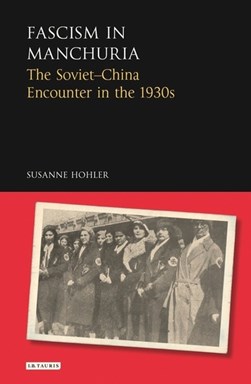-
BROWSE 1000s OF BOOKS IN STOCK
-
FREE DELIVERY ON ORDERS OVER €10
Fascism in Manchuria
Hardback
Series: See all books in this series
The history of the Russian fascist movement in Harbin, Manchuria during the 1930s has become increasingly relevant to our understanding of modern Russia. As a railway junction and an important centre of the Jewish Diaspora, the city of Harbin became a focus of Russian emigration to Manchuria in the early 1930s, partly because of its proximity to the resource-rich Manchurian plains. In this multicultural and cosmopolitan setting the first Russian fascist groups were established. Based on an analysis of Russian civil society, Fascism in Manchuria sheds light on the impact of the newly-founded All-Russian Fascist Party on the Russian emigre community, employing the concept of 'dark' civil society. Suzanne Hohler demonstrates how fascist involvement in local civil society increasingly determined public opinion, examining the power of the military organizations, the symbols and style of the fascist organizations, the cult of the leader as well as the 'public-relations' activities of the fascist organizations and of the so-called Russian Club. In this context the book provides not only insights into the history and ideology of the far eastern branch of Russian fascism and its transnational connections, but also touches upon a variety of issues of daily life in the city, issues such as education, drug addiction and hooliganism among Russian youth, the local YMCA, the famous Kaspe kidnapping and the rise of anti-Semitism. Fascist literature from Harbin is being republished in today's Russia, and Fascism in Manchuria provides an important historical context for the thinking and motives which drive the Russian right."
€139.20
Was €174.00

417 Reward Points
In stock online
Extended Range: Delivery in 2-3 working days
Extended Range: Delivery in 2-3 working days
Free Delivery on this item
Any purchases for more than €10 are eligible for free delivery anywhere in the UK or Ireland!
The history of the Russian fascist movement in Harbin, Manchuria during the 1930s has become increasingly relevant to our understanding of modern Russia. As a railway junction and an important centre of the Jewish Diaspora, the city of Harbin became a focus of Russian emigration to Manchuria in the early 1930s, partly because of its proximity to the resource-rich Manchurian plains. In this multicultural and cosmopolitan setting the first Russian fascist groups were established. Based on an analysis of Russian civil society, Fascism in Manchuria sheds light on the impact of the newly-founded All-Russian Fascist Party on the Russian emigre community, employing the concept of 'dark' civil society. Suzanne Hohler demonstrates how fascist involvement in local civil society increasingly determined public opinion, examining the power of the military organizations, the symbols and style of the fascist organizations, the cult of the leader as well as the 'public-relations' activities of the fascist organizations and of the so-called Russian Club. In this context the book provides not only insights into the history and ideology of the far eastern branch of Russian fascism and its transnational connections, but also touches upon a variety of issues of daily life in the city, issues such as education, drug addiction and hooliganism among Russian youth, the local YMCA, the famous Kaspe kidnapping and the rise of anti-Semitism. Fascist literature from Harbin is being republished in today's Russia, and Fascism in Manchuria provides an important historical context for the thinking and motives which drive the Russian right."

417 Reward Points
Any purchases for more than €10 are eligible for free delivery anywhere in the UK or Ireland!
€139.20
Was €174.00

417 Reward Points
Any purchases for more than €10 are eligible for free delivery anywhere in the UK or Ireland!
Product Description
The history of the Russian fascist movement in Harbin, Manchuria during the 1930s has become increasingly relevant to our understanding of modern Russia. As a railway junction and an important centre of the Jewish Diaspora, the city of Harbin became a focus of Russian emigration to Manchuria in the early 1930s, partly because of its proximity to the resource-rich Manchurian plains. In this multicultural and cosmopolitan setting the first Russian fascist groups were established. Based on an analysis of Russian civil society, Fascism in Manchuria sheds light on the impact of the newly-founded All-Russian Fascist Party on the Russian emigre community, employing the concept of 'dark' civil society. Suzanne Hohler demonstrates how fascist involvement in local civil society increasingly determined public opinion, examining the power of the military organizations, the symbols and style of the fascist organizations, the cult of the leader as well as the 'public-relations' activities of the fascist organizations and of the so-called Russian Club. In this context the book provides not only insights into the history and ideology of the far eastern branch of Russian fascism and its transnational connections, but also touches upon a variety of issues of daily life in the city, issues such as education, drug addiction and hooliganism among Russian youth, the local YMCA, the famous Kaspe kidnapping and the rise of anti-Semitism. Fascist literature from Harbin is being republished in today's Russia, and Fascism in Manchuria provides an important historical context for the thinking and motives which drive the Russian right."
Product Details
ISBN9781784535223
FormatHardback
PublisherI.B. TAURIS (18 December. 2016)
No. of Pages0
Weight461
Language English
Dimensions 216 x 138 x 25

